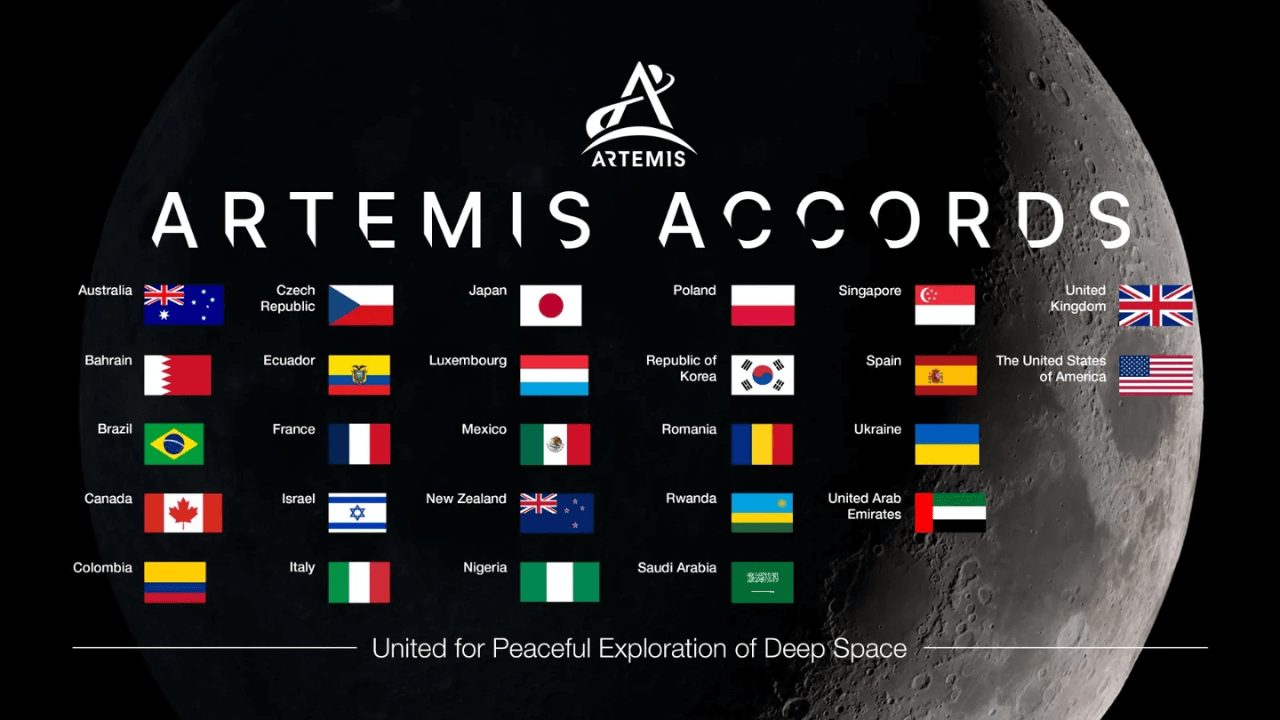Prime Minister Narendra Modi demonstrated India’s commitment to global space cooperation and lunar exploration by signing the Artemis Accords during his state visit to the United States. These accords, initiated by NASA and the US Department of State, establish a framework for collaboration in civil space exploration, with a specific focus on returning humans to the Moon and expanding exploration to Mars and beyond.
A Multilateral Agreement for Lunar Exploration
Grounded in the principles of the United Nations Outer Space Treaty of 1967, the Artemis Accords serve as a non-binding multilateral agreement between the US government and other participating nations in the Artemis program. This US-led initiative aims to land humans on the Moon by 2025 and foster future space exploration endeavors.
Principles and Guidelines for Lunar Missions
The Artemis Accords outline fundamental principles that signatory nations are expected to uphold. These include conducting space activities in a peaceful manner, promoting transparency and interoperability, practicing sustainable utilization of space resources, and preserving historic lunar sites and artifacts.
India’s Commitment to Global Space Cooperation
India’s decision to sign the Artemis Accords demonstrates its dedication to collaborating with other nations in space exploration. By joining the accords, India gains opportunities for knowledge sharing, technological advancements, and scientific research in future lunar missions. Additionally, the Indian Space Research Organisation (ISRO) and NASA have agreed to launch a joint mission to the International Space Station (ISS) in 2024, further strengthening India’s involvement in international space endeavors.
Expanding Collaborations and Semiconductor Ecosystem
During Prime Minister Modi’s state visit, partnerships between the United States and India were also announced in the semiconductor industry. Micron Technology, with support from the Indian National Semiconductor Mission, plans to invest over $800 million in establishing a $2.75 billion semiconductor assembly and test facility in India. These collaborations aim to strengthen India’s semiconductor industry and contribute to global supply chain resilience.
By signing the Artemis Accords and fostering partnerships in the semiconductor sector, India solidifies its position in global space cooperation and semiconductor technology, opening avenues for scientific advancements and economic growth.
- 3 August Current Affairs 2023 in English
- MoU Between Subroto Mukerjee Sports and Education Society and All India Football Federation (AIFF) to Promote Football at Grassroot Level
- Dr. Mansukh Mandaviya Delivers Keynote Address at the 13th Indian Organ Donation Day ceremony
- Education Ministry Forms Expert Panel on Anti-Discrimination in Higher Education
- Concerns Arise Over Cheetah Deaths at Kuno National Park
